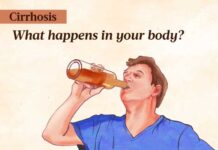
You are not alone if you suffer from both depression and a headache disorder. One could be triggering the other, or you could just happen to be enduring two complex and painful medical conditions at the same time. It’s often tricky to tease apart—even scientists are scratching their heads over the precise link.
Why Headaches Can Be Associated With Depression
Sometimes, individuals do not complain to their healthcare provider or loved ones about “feeling sad or down.” They may, instead, complain about physical ailments. These ailments, of course, warrant investigation but, if normal, may be indicative of a mood alteration.
Just as a headache disorder, especially a chronic one, can trigger depression or another mood disorder—depression can trigger headaches.1 It’s like the chicken and egg theory and can be puzzling for healthcare providers to tease out. Remember, even if the depression is the root cause for a person’s headache, their head pain is still very real.
Often times, too, the connection between depression and headaches is not causal—instead, depression contributes to the headache disorder or vice versa. So a person may notice that depression makes their headaches more severe or occur more frequently.
Keep in mind, besides a headache, there are other somatic (bodily) complaints you can experience with depression:
- Pain (neck, back, abdominal)
- Joint aches and pains
- Constipation
- Weakness
Definition of Major Depression Disorder
According to the Diagnostic and Statistical Manual of Mental Disorders, the criteria for Major Depressive Disorder (MDD) are the following:
Depressed mood or loss of pleasure/interest in daily activities for more than two weeks plus at least five out of nine symptoms below, present nearly every day.
- Depressed or irritable mood most of the day, nearly every day, as indicated by either subjective report (e.g. feels sad or empty) or observation made by others (e.g. appearing tearful)
- Decreased interest or pleasure in activities once enjoyed
- Eating too little or too much, which may lead to unintended weight gain or loss
- Change in sleep (insomnia or hypersomnia)
- Change in activity (psychomotor agitation or psychomotor retardation)
- Fatigue or loss of energy
- Feelings of worthlessness or excessive or inappropriate guilt
- Diminished ability to think or concentrate, or more indecisiveness
- Thoughts of death or suicide, or has a suicide plan
Diagnosing Depression
The next time you go for your physical examination, do not be surprised if your healthcare provider screens you for depression, especially if you have a history of a chronic pain condition, like migraines or cluster headaches.
The Patient Health Questionnaire-9 (PHQ-9) is one of the most common tools used to screen for depression. For elderly patients, healthcare providers commonly use the 15-item Geriatric Depression Scale.
Differential Diagnosis of Depression
When considering depression, your healthcare provider may also screen you for other psychiatric diagnoses that can mimic or coexist with Major Depressive Disorder. Some of these diagnoses include:
- Generalized anxiety disorder
- Bipolar disorder
- Dysthymic disorder
- Schizoaffective disorder
- Schizophrenia
- Bereavement
Your healthcare provider may also test you for these medical conditions that mimic symptoms of depression like:
- Hypothyroidism
- Anemia
- Vitamin B12 deficiency
- Fibromyalgia
- Liver or kidney disease
- High calcium
Treatment of Depression
The treatment of depression often entails a combination of medication and “talk therapy,” for a period of at least six months.2While traditional antidepressants, like a selective serotonin reuptake inhibitor (SSRI), may be prescribed, your healthcare provider may also consider a drug like Cymbalta (duloxetine), which is an antidepressant that is used to treat pain conditions.
In addition to medication and “talk therapy,” there are lifestyle behaviors that you can adopt to help your depression, such as:
- Regular exercise
- Eating regular, nutritious meals
- Seeking out support and comfort from family or friends
- Getting a good night sleep every night and maintaining a regular sleep schedule, even on the weekends
- Avoiding alcohol, which is a depressant
A Word From Verywell
If you think your headaches could be a sign of depression, or if your headaches are triggering sad thoughts, please seek the guidance of your primary care provider, neurologist, or psychiatrist. You are not alone. Be proactive in your healthcare and well-being.
Sources:
- Dindo LN, Recober A, Haddad R, Calarge CA. Comorbidity of Migraine, Major Depressive Disorder, and Generalized Anxiety Disorder in Adolescents and Young Adults. Int J Behav Med. 2017;24(4):528-534. doi:10.1007/s12529-016-9620-5
- Khan A, Faucett J, Lichtenberg P, Kirsch I, Brown WA. A systematic review of comparative efficacy of treatments and controls for depression. PLoS ONE. 2012;7(7):e41778. doi:10.1371/journal.pone.0041778
Important Notice: This article was originally published at www.verywellhealth.com by Colleen Doherty, MD where all credits are due. Medically reviewed by Claudia Chaves, MD.
Disclaimer
The watching, interacting, and participation of any kind with anything on this page does not constitute or initiate a doctor-patient relationship with Dr. Farrah™. None of the statements here have been evaluated by the Food and Drug Administration (FDA). The products of Dr. Farrah™ are not intended to diagnose, treat, cure, or prevent any disease. The information being provided should only be considered for education and entertainment purposes only. If you feel that anything you see or hear may be of value to you on this page or on any other medium of any kind associated with, showing, or quoting anything relating to Dr. Farrah™ in any way at any time, you are encouraged to and agree to consult with a licensed healthcare professional in your area to discuss it. If you feel that you’re having a healthcare emergency, seek medical attention immediately. The views expressed here are simply either the views and opinions of Dr. Farrah™ or others appearing and are protected under the first amendment.
Dr. Farrah™ is a highly experienced Licensed Medical Doctor certified in evidence-based clinical nutrition, not some enthusiast, formulator, or medium promoting the wild and unrestrained use of nutrition products for health issues without clinical experience and scientific evidence of therapeutic benefit. Dr. Farrah™ has personally and keenly studied everything she recommends, and more importantly, she’s closely observed the reactions and results in a clinical setting countless times over the course of her career involving the treatment of over 150,000 patients.
Dr. Farrah™ promotes evidence-based natural approaches to health, which means integrating her individual scientific and clinical expertise with the best available external clinical evidence from systematic research. By individual clinical expertise, I refer to the proficiency and judgment that individual clinicians acquire through clinical experience and clinical practice.
Dr. Farrah™ does not make any representation or warranties with respect to the accuracy, applicability, fitness, or completeness of any multimedia content provided. Dr. Farrah™ does not warrant the performance, effectiveness, or applicability of any sites listed, linked, or referenced to, in, or by any multimedia content.
To be clear, the multimedia content is not intended to be a substitute for professional medical advice, diagnosis, or treatment. Always seek the advice of your physician or other qualified health providers with any questions you may have regarding a medical condition. Never disregard professional medical advice or delay in seeking it because of something you have read or seen in any website, video, image, or media of any kind. Dr. Farrah™ hereby disclaims any and all liability to any party for any direct, indirect, implied, punitive, special, incidental, or other consequential damages arising directly or indirectly from any use of the content, which is provided as is, and without warranties.








